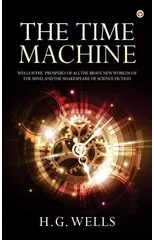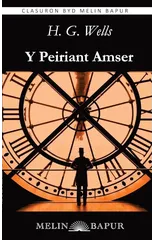When a diplomat dies in the 1930s, he leaves behind a book of 'dream visions' he has been experiencing, detailing events that will occur on Earth for the next two hundred years. This fictional 'account of the future' (similar to LAST AND FIRST MEN by Olaf Stapledon) proved prescient in many ways, as Wells predicts events such as the Second World War, the rise of chemical warfare and climate change.
H.G. Wells
H.G. Wells was a prolific English writer best known for his science fiction novels. His most notable works include "The War of the Worlds," "The Time Machine," and "The Invisible Man." Wells' writing style was characterized by his imaginative storytelling, social commentary, and exploration of scientific concepts. He is often credited with popularizing the science fiction genre and influencing future writers in the field. "The War of the Worlds" remains his most famous work, depicting a Martian invasion of Earth and exploring themes of imperialism and the resilience of humanity. Wells' contributions to literature have had a lasting impact on the genre of science fiction and continue to be celebrated to this day.





